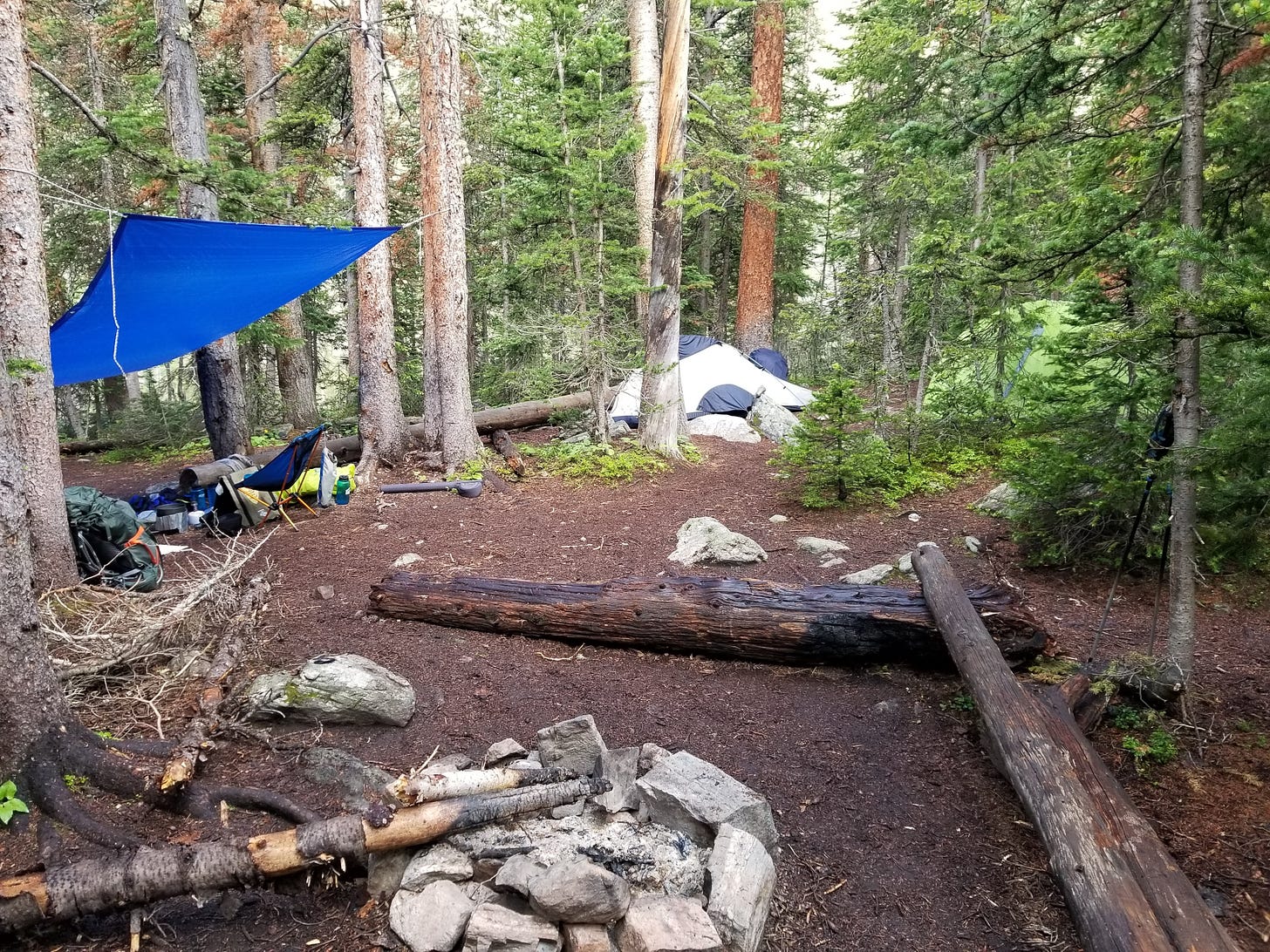Picking off the Stragglers
This terrifying mountain lion encounter is a stark lesson about speaking up, being aware of approaching danger, and the perils of standing alone.
Something Stalked us in the Dark
I’ve spoken before about how the dark can be so absolute on the trail; the world may as well not exist outside of your flashlight beam.
This time, footsteps beyond our field of vision ruined the illusion. An unknown creature — we assumed it was one — moved gracefully with quiet padding paces. But the occasional twig, leaf or rustle in the foliage gave it away in the still night air.
This was my first backpacking trip in years. We’d gotten a late Friday afternoon start, waiting for one of the group members to get off work. The sun set less than an hour into our push for camp. Our other group member had recently flown in from sea level, and was still getting acclimated.
Conditions were not ideal. Still, we reasoned we could press on and enjoy a relaxing few days by the mountain lake we’d chosen.
Keep Talking and Nobody Dies
We clambered over a downed tree and emerged into an aspen grove. I leaned against one of the thick parchment trunks, breathing heavy. The white bark shone in our headlamp lights, in stark contrast with the void beyond.
Something shifted in that darkness, then the forest was silent once more.
“Hey!” I hollered. “Get out of here.”
Tired and out of shape, just blurting out those few words sapped my strength and left me winded. After sucking down a gulp of air, I managed: “What do you think it is?”
“It’s just past dusk,” one of the other group members offered. “Mountain lion, maybe? Could be waiting to see if one of us falls behind the group.”
“Then we need to stick close,” I said, “And keep talking.”
Subscriptions are free, support independent writing, and ensure you never miss an edition.
Our out-of-town visitor took the lead. We reasoned he would be the most likely to fall behind the rest of the group. I brought up the rear, pushing the pace.
We kept our conversation as constant and loud as we could manage. When we ran out of things to say, we broke the silence with nonsense and hollered expletives.
Yet every time we paused for a breath, we could hear the creature creeping along with us. It seemed content to tail us until we exhausted ourselves and made a mistake. The truth is, by this point we’d already made several.
Our out-of-town friend was still acclimating. I should’ve brought this up when the group first entertained the idea of a hike at 11,000 feet.
Hiking through mountain lion territory during the time of day they’re most active was a questionable decision. I should have pointed this out on the drive in.
When it became apparent we were getting a late start, I should’ve suggested we camp by the trailhead, and made the trek in the morning.
Individually, these issues seem like minor obstacles. You run into trouble when those little problems pile up. I knew this, but didn’t want to speak up and derail the trip for everyone else.
Speaking up, at the Right Time
Thanks to our experience and calm determination, we eventually arrived at our destination safely. The animal stalking us decided we weren’t worth the trouble. We made camp early in the morning and collapsed, exhausted.
By the time we realized how much trouble we were in, it was too late to object to the plan.
If you notice in my example above, these problems only get harder to fix the longer you keep your mouth shut.
Saying something before you’re in deep — when the warning signs ahead are still just red flags — takes real courage and responsibility. If you know something is wrong, don’t be shy about it. You may be the voice of reason that prevents everyone from committing to something foolish, or dangerous.
The alternative is darkness, uncertainty, and the creeping fear you’ll be picked off for stepping too far from the group.
Forward this post to a friend who needs to hear this message.
What I’m Reading
Citizen Scholar is a free newsletter covering a book or essay each Friday morning, discussing the core ideas and their implications. Citizen Scholar focuses on spurring discussion about the past, explaining the present, or providing a glimpse into the future.
A recent post I thoroughly enjoyed does a bit of all three:
Their analysis of “Why Nations Fail,” touches on a fascinating case study: how the English monarchy attempted to fix a severe shortage of workers following a global pandemic — the Bubonic Plague.
If you’re a fan of history, or just a fan of nuanced discussion, I highly recommend you check them out.
These posts are well researched, and well-written — or spoken, if you’d prefer to listen in podcast form.
You can subscribe here.
I Want to Hear from You
When has speaking out saved you? Is there a moment in your life when you wish you’d voiced your concerns sooner?









CHILLS. I would have been terrified with that lion lurking in the dark. And a great point about speaking up even if you might look like a “downer.” 👏